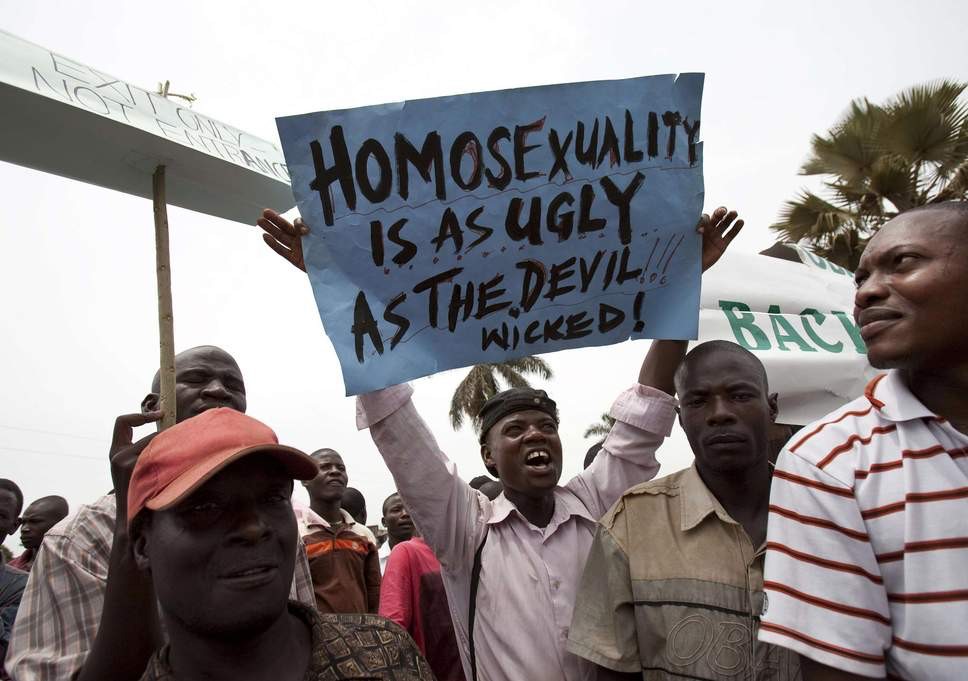HOMOPHOBIA & DETERIORATION OF HUMAN RIGHTS IN TANZANIA
By Isabel Viviano
In early November, Paul Makonda, who is the governor of Tanzania’s largest city, Dar Es Salaam, vowed to carry out mass arrests of “homosexuals in our city”. Homosexuality is a crime in Tanzania, and can be punished with over 30 years of imprisonment as well as harsh physical examinations which are viewed as torture by many international human right organisations. This has led to hundreds of LGBT activists going into hiding, due to the fear of being attacked and persecuted purely based on their sexuality.
Paul Makonda posted an interview on YouTube calling for Tanzanians to report members of the LGBT community, in an intensification of anti-LGBT discrimination. Within days, he had received a large number of messages, roughly 5,000 calls reporting over 200 alleged homosexuals in Dar Es Salaam. Makonda then announced he had put together a task force with the aim of identifying and punishing homosexuals. This team consisted of officials and police – and anyone they arrested for being gay could be facing a life sentence.
An LGBT activist, who spoke out in confidence, provided insight into the awful treatment homosexuals are currently facing. He described how the authorities were raiding houses, targeting activists, brutally arresting them. The expectation is that it will only get worse. People are beginning to leave the city in search of safety as they “must hide”. Tanzanians were publishing the names of suspected homosexuals online, giving them no choice but flee if they wanted to escape to the dreadful consequences.
This inexplicable sense of fear has led the Refugee Coalition of East Africa, a registered LGBT community organisation in the neighbouring nation Kenya, to reach out with support. Their message is that, should they flee to Kenya, “We are here for you” as they have “lived through your fear”. This support provided to the mistreated LGBT community has encouraged some to flee to the relative security of Kenya.
Denmark has also taken a stand against Tanzania. It has withheld almost £8 million in aid money specifically as a response to these human right abuses and “unacceptable homophobic comments” from senior government officials. As a response, the Tanzanian foreign ministry has said Makonda’s campaign represents his personal views, not the official government position. However, since John Magufuli became president in 2015, the government has backed a series of homophobic measures.
The country is now facing growing criticism over these human right abuses. Amnesty International’s regional director for east Africa, Joan Nyanyuki, has spoken out, stating that the task force “serves to incite hatred among members of the public”, and that it is a “hateful statement” with no just purpose. The UN’s high commissioner for human rights, Michelle Bachelet, said she feared this homophobia was becoming a “licence to carry out violence, intimidation, bullying, harassment and discrimination” to the LGBT community, without humane reasoning. However, Makonda has warned international organisations and other countries not to interfere, saying Tanzania has its own “norms” which should be left to be dealt with within their own country.
The Tanzanian population appears unable to resist the orders of Makonda due to the severe consequences they would face for “knowledge of any person against the order of nature”. Therefore, Tanzanians seem to just absorb the hate speech of religious leaders and politicians, because there is no counter narrative. The harsh reality is that fear is overpowering Tanzanian’s morals and sense of justice. Police brutality is playing an important part in the abuse of human rights, and torture-like physical examinations on men convicted of homosexuality continue to take place despite criticism from a multitude of organisations and countries. However, without the cooperation of the Tanzanian population, there is no solution on the horizon for what is, effectively, legitimised torture and abuse.
